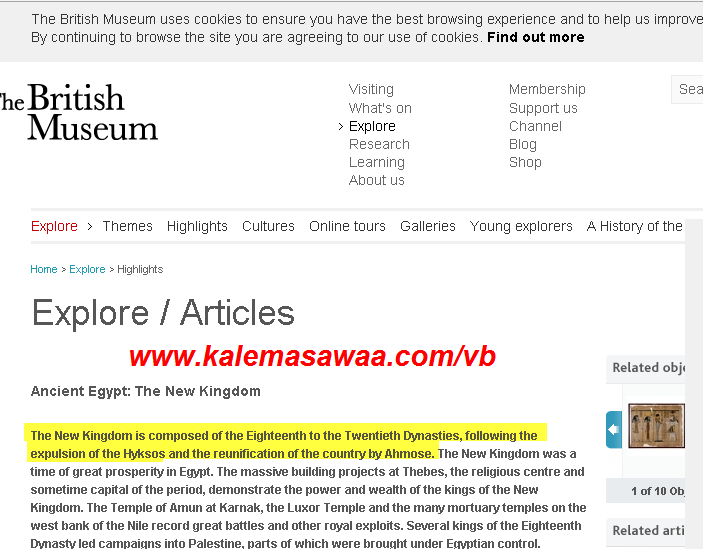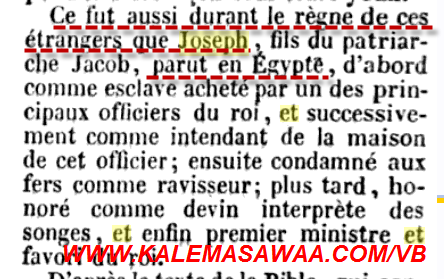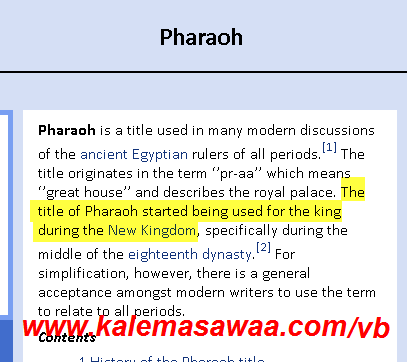The miracle in the word: Pharaoh
O Allah, bless Muhammad and his family and companions, day after day the Holy Quran does not cease to amaze us Muslims and to tie the tongues of the doubters and slanderers. How could it not, when it is the clear truth, which falsehood cannot approach from before it or from behind it, a revelation from the Wise, the Praiseworthy. ((And when We delivered you from the people of Pharaoh, who were afflicting you with the worst of torment, slaughtering your sons and sparing your women. And in that was a great trial from your Lord.)) Al-Baqarah 49 (( Then after them We sent Moses with Our signs to Pharaoh and his establishment, but they wronged them. So see how was the end of the corrupters.)) Al-A’raf 103 (( And Moses said, “O Pharaoh, indeed I am a messenger from the Lord of the worlds.”)) Al-A’raf 104 ((And We certainly seized the people of Pharaoh with years of drought and loss of fruits that perhaps they would be reminded. ”)) Al-A’raf 130 Why did the Lord of Glory say - to indicate the ruler of Egypt - Pharaoh and not a king as is the case in Surat Yusuf ????? ((And the king said , "Indeed, I see seven fat cows being eaten by seven lean ones, and seven green ears of corn and others withered. O eminent ones, give me your opinion concerning my vision, if you should interpret visions.")) Yusuf 43 ((And the king said , "Bring him to me." So when the messenger came to him, he said, "Go back to your Lord and ask Him what was the matter with the women who cut their hands. Indeed, my Lord He is aware of their plotting. ( Yusuf 50 )
((And the king said , “Bring him to me, that I may take him as my own.” And when he spoke to him, he said, “Indeed, you are today with us in high esteem and trustworthy.”))
Joseph 54 ----- Quite simply..... The word Pharaoh was not used during the Old Kingdom. The word Pharaoh was only used during the New Kingdom . As is known, Joseph, peace be upon him, lived during the Hyksos period (foreign rulers) who extended their influence over ancient Egypt, and whose rule ended with its unification by the ruling dynasty 18, who thus announced the beginning of the New Kingdom period NK.
| This image is in another size. Click here to view the image in its correct form. The image dimensions are 703x549. |

Evidence that Joseph, peace be upon him, lived during the Hyksos rule: Book:

Ancient Egypt Author: Champollion Page: 298 Book link: Please click here Evidence that the word Pharaoh was not used except during the New Kingdom period:



Translate the colored part: During the Old Kingdom period, the king of Egypt was not called Pharaoh. https://en.wikibooks.org/wiki/Saylord_New_Kingdoms Translate the colored part: The title Pharaoh began to be used (to indicate the king) during the New Kingdom period. http://www.princeton.edu/~achaney/tmve/wiki100k/docs/Pharaoh.html Previously, we proved, praise be to God, that Pharaoh Ramses II, who belonged to the ruling 19th Dynasty (New Kingdom), was the Pharaoh of the Exodus. Please see my dc for link or chk blogs



| This image is in another size. Click here to view the image in its correct form. The image dimensions are 827x153. |

Translate the colored part: During the Old Kingdom period, the king of Egypt was not called Pharaoh. https://en.wikibooks.org/wiki/Saylord_New_Kingdoms Translate the colored part: The title Pharaoh began to be used (to indicate the king) during the New Kingdom period. http://www.princeton.edu/~achaney/tmve/wiki100k/docs/Pharaoh.html Previously, we proved, praise be to God, that Pharaoh Ramses II, who belonged to the ruling 19th Dynasty (New Kingdom), was the Pharaoh of the Exodus. Please see my dc for link or chk blogs


JOEL FORMAN - THE USE OF THE TERM "PHARAOH" IN THE BIBLE
ReplyDeleteThe kings of Egypt were not originally called pharaohs by the ancient Egyptians. In the late First Dynasty, the term used was nesu-bit, referring to the king, with the additional idea that the king was a combination of divine and mortal. The term "pharaoh" for the king of Egypt developed over time, and was also used by the Hebrews and Greeks to describe the Egyptian ruler. Today, we commonly use the term "pharaoh" with reference to the kings of Ancient Egypt, including the Hyksos and Ptolemaic rulers, but usually not the Persian rulers, although many of them did have a formal Egyptian title manufactured for themselves. In Ancient Egypt, the term "pharaoh" was not originally a royal title. Translated literally, the earliest meaning of the Egyptian word per-o was "great house", that is the palace or residence of the king and his administration. This usage is found as early as 2500 BCE. The term "pharaoh" referred to the ordinances and commands the king issued in his administration, but not to the person of the king himself.
If Siamun is indeed the first King to be referred to as Pharaoh using it as a personal title, then it still does not necessarily prove that Ramesses held the same title, particularly in the Biblical narrative, as this would conflict with the belief that Ramesses was Pharaoh, given that Ramesses existed prior to King Siamun when Pharaoh was not yet commonly used by Egyptians as a personal designation.
ReplyDeleteIt is known that in the Bible, the term Pharaoh is employed as a title for all rulers of Egypt but with a different connotation than how it was used by the Egyptians. This distinction arises from the timing of the Bible's authorship post the Babylonian exile, following Siamun's reign, where the Jewish people regarded all Egyptian rulers as Pharaoh denoting the King or Monarch of Egypt, analogous to our use of the term "Kings" despite it not being a formal Egyptian title. Notably, it is linguistically inaccurate to claim that all Egyptian rulers referred to themselves as Pharaohs, as per historical context. If Siamun truly was the first to be personally designated Pharaoh, then it follows that preceding Egyptian Monarchs, including Ramesses, were not addressed as Pharaoh by their own people and did not address themselves as Pharaoh.
Here is what Yaqut al-Hamawi (famous Byzantine Arab geographer) wrote in his book "Mu’jam al Buldan" (the Dictionary of Countries), concerning the identity of Firaun (the tyrant who persecuted Musa):
ReplyDelete"فلما هلك صار بعده فرعون موسى، عل هٌ السلام، وقيل : كان من العرب من بلي، وكان أبرش قصيرٌا يطأ في لحيته ملكها خمسمائة عام ثم غرقه الله وأهلكه وهو الوليدٌ بن مصعب، وزعم قوم أنه كان من قبط مصر ولم كٌن من العماليقٌ".
The Fir'awn was an Arab man of the clan of ‘Amaleeq. He was a short, squat, bearded man who lived 500 years (???) and his name was "Al Waleed bin Mus‘ab". Some people falsely claimed that he was Egyptian.